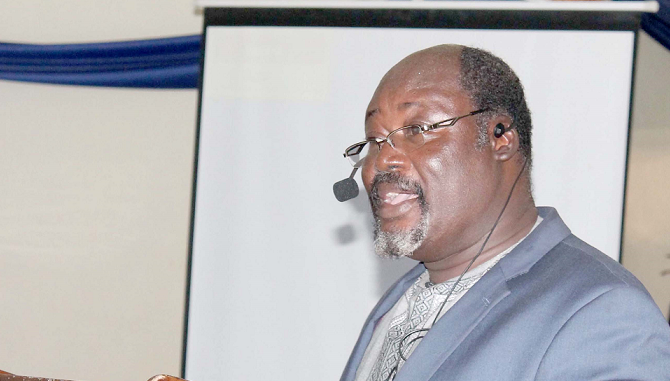
Train more young scientists - Prof. Bosompem urges govt
The Deputy Director of the Nogouchi Memorial Institute for Medical Research (NMMIR), Professor Kwabena M. Bosompem, has called on the government to adopt a strategy for training a lot more young scientists to help solve the nation’s problems.
According to him, Ghana is endowed with young, enthusiastic and enterprising youth who were willing to study science and related courses if they were given the needed training and assistance.
Prof. Bosompem made the remarks at the annual national congress of the Ghana Biochemistry Students Association (GHABSA) which opened in Accra last Wednesday.
The conference was themed, “Training Young Scientists for the Modern Ghanaian Society.” It was attended by scientists and Biochemistry students from the University of Ghana, University for Development Studies (UDS), University of Cape Coast (UCC), Kwame Nkrumah University of Science and Technology (KNUST) and the University of Health and Allied Sciences (UHAS).
The participants met to deliberate on the future of science in the country.
Quality training
According to Prof. Bosompem, the resourcefulness of young scientists was heavily influenced by the quality of their training.
He said, “It is usually informed by the scope, strategies, innovation and experiential nature of the training.
“Classroom teaching and a few practical sessions are no longer enough in training young scientists in any discipline in developing countries.
“A functional approach that is practical oriented, interdisciplinary and experiential in nature and designed for linking education and training to industry is the way forward,” he emphasised.
He added that training and assisting young scientists was also a sure way of providing long-term employment opportunities for the youth.
Prepare yourselves
The Head of Department (HOD) of the Biochemistry Department, University of Ghana, Dr Gordon Awandare, reiterated the need to design quality projects to train and equip students to produce scientists who could drive innovation.
Dr Awandare, who is also the Director of the West African Centre for Cell Biology of Infectious Pathogens (WACCBIP), also advised students to be prepared to take up challenges that came their way while in school.
He indicated that the world was competitive and it was only those who strived for the best who were able to withstand the competition, adding that; “Mediocrity does not give room to success.”
Support research
The Chief Executive Officer (CEO) of the Centre for Awareness (COA), developers of an HIV injectable herbal treatment, COA 72, Dr Samuel Ato Duncan, called on the government to support scientific research by increasing budgetary allocation to the sector.
He also advised the youth to dedicate much of their time to research in order to improve knowledge stock in the country.
Dr Duncan further called for support for private companies and institutions, such as the COA, which were dedicated to scientific research.
Dr Duncan shared his frustrations about his invention with the students and said after developing the COA 72 injectable meant for the cure of HIV, he had been made to go through a lot of struggles and rejections by both policy makers and academics.
According to him, the drug had been used to treat some HIV and AIDS-infected patients “even though there are some individuals in certain institutions who are trying to thwart my efforts, and that is indeed frustrating.”
